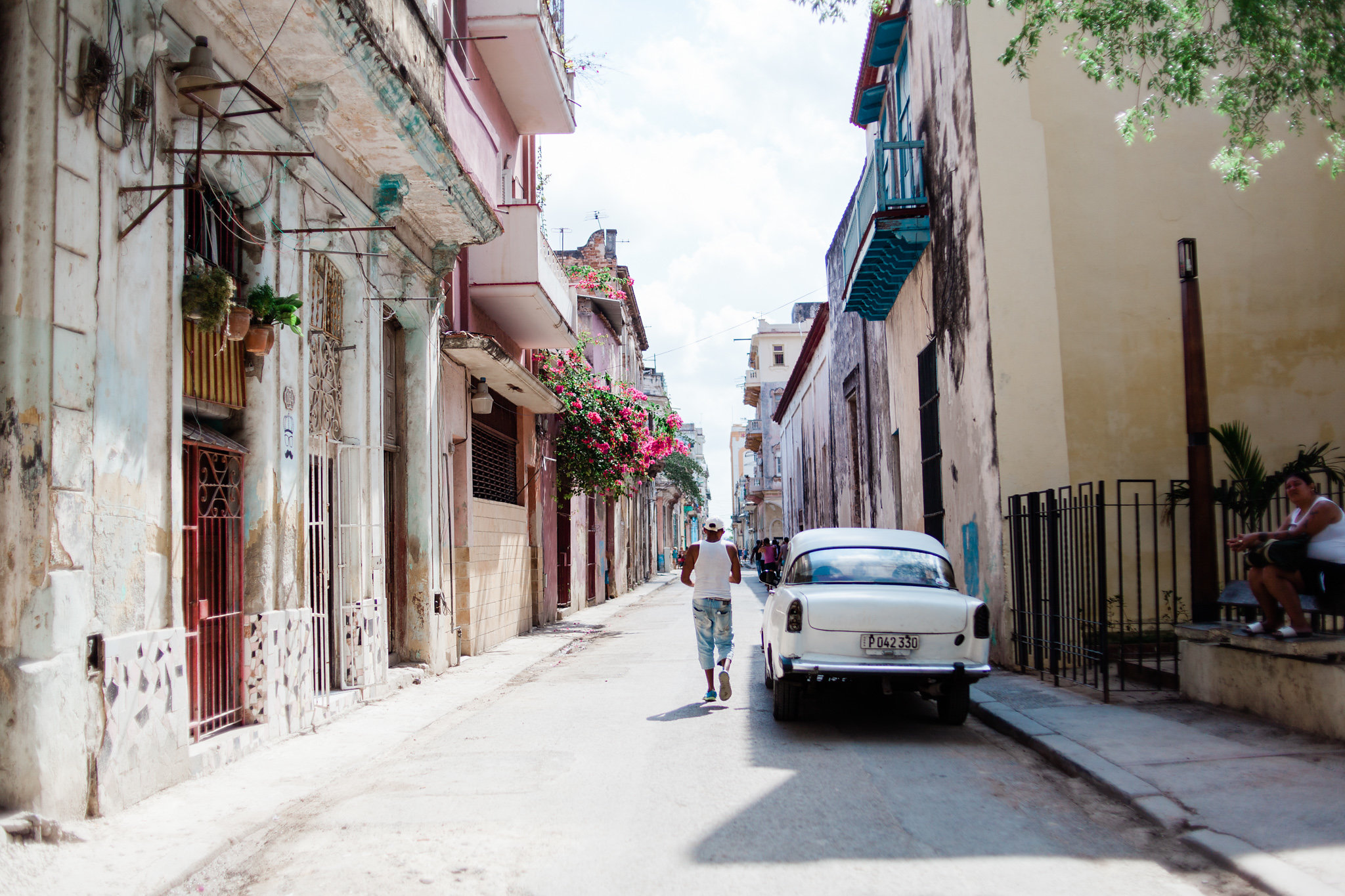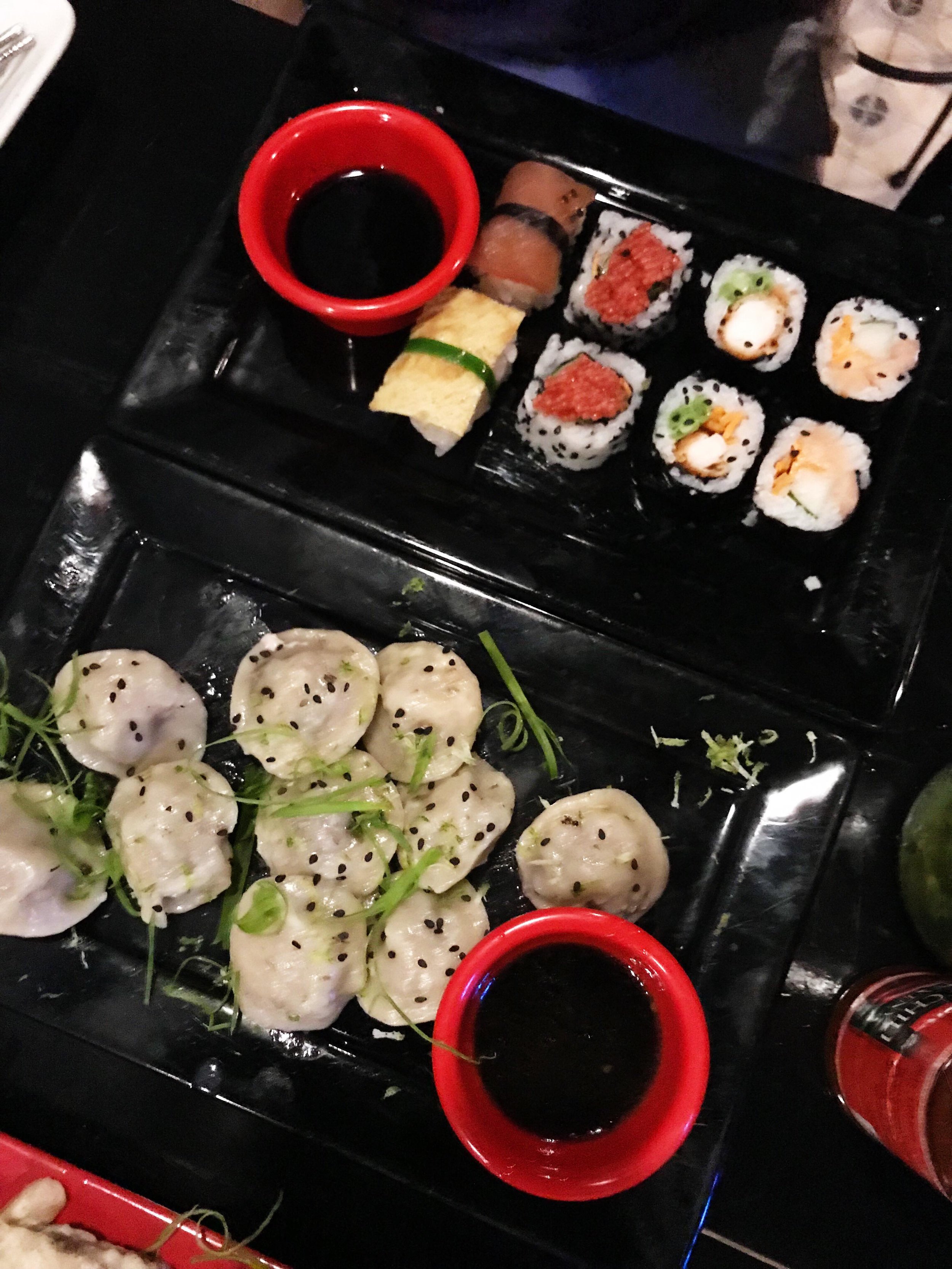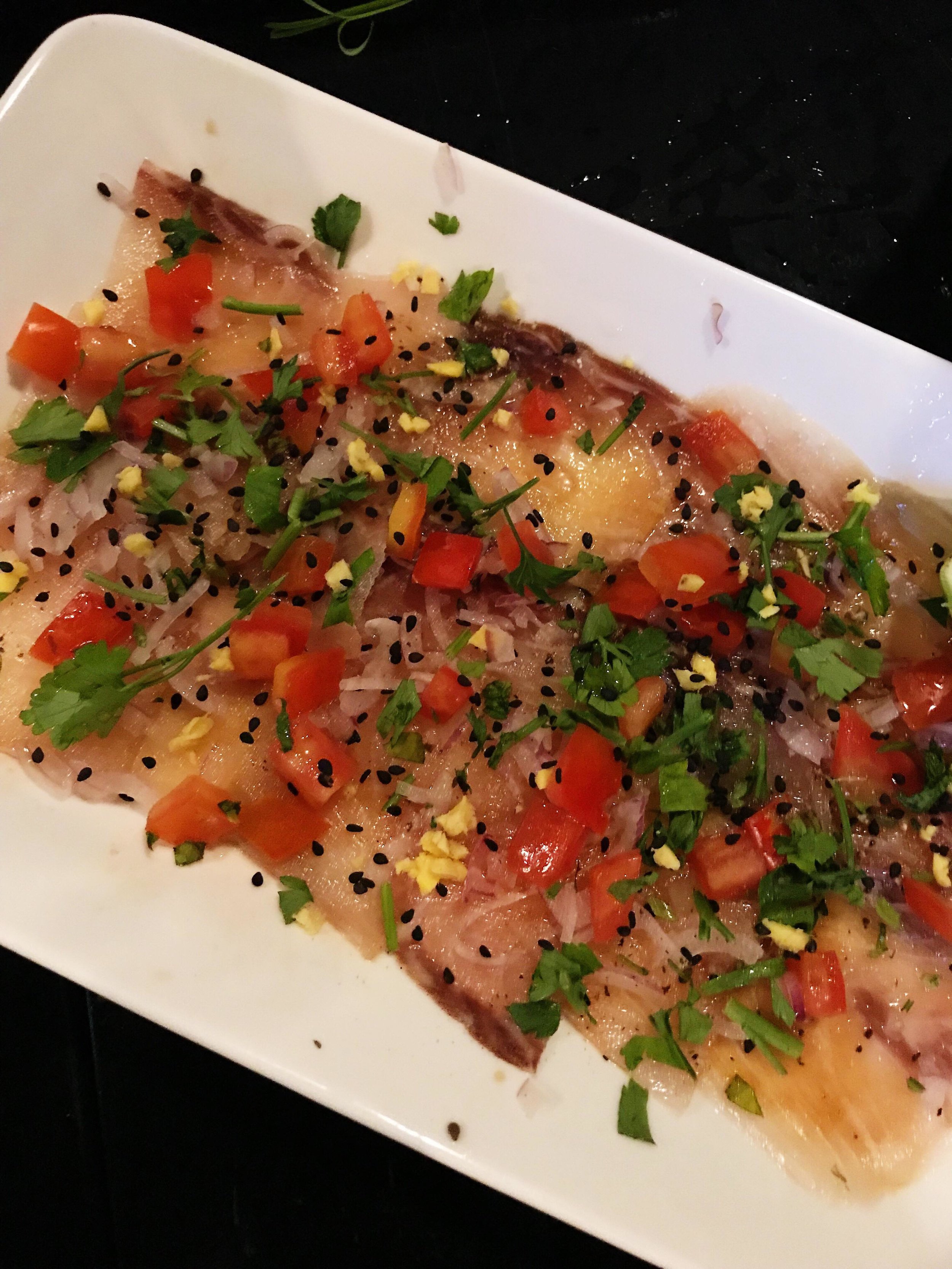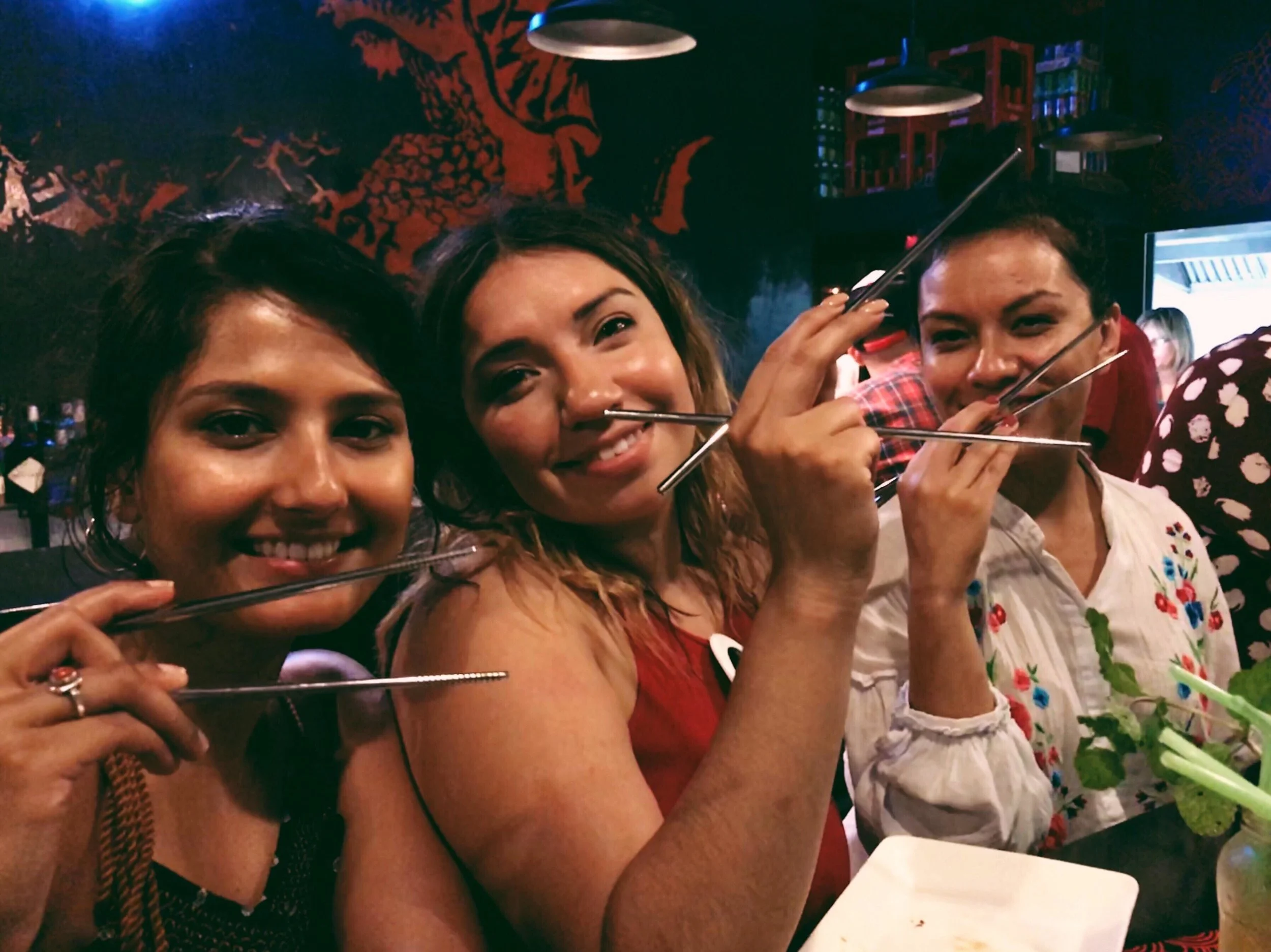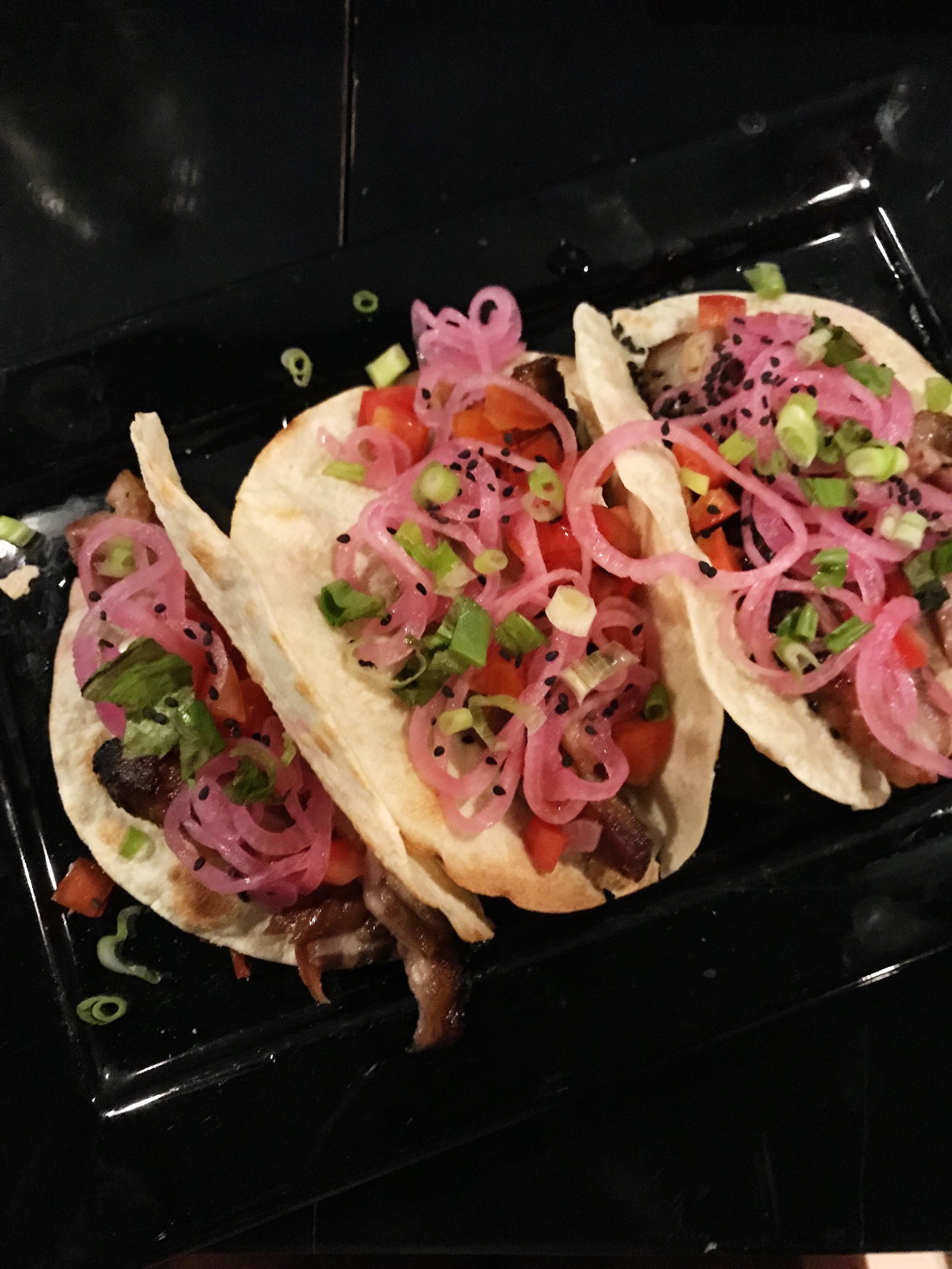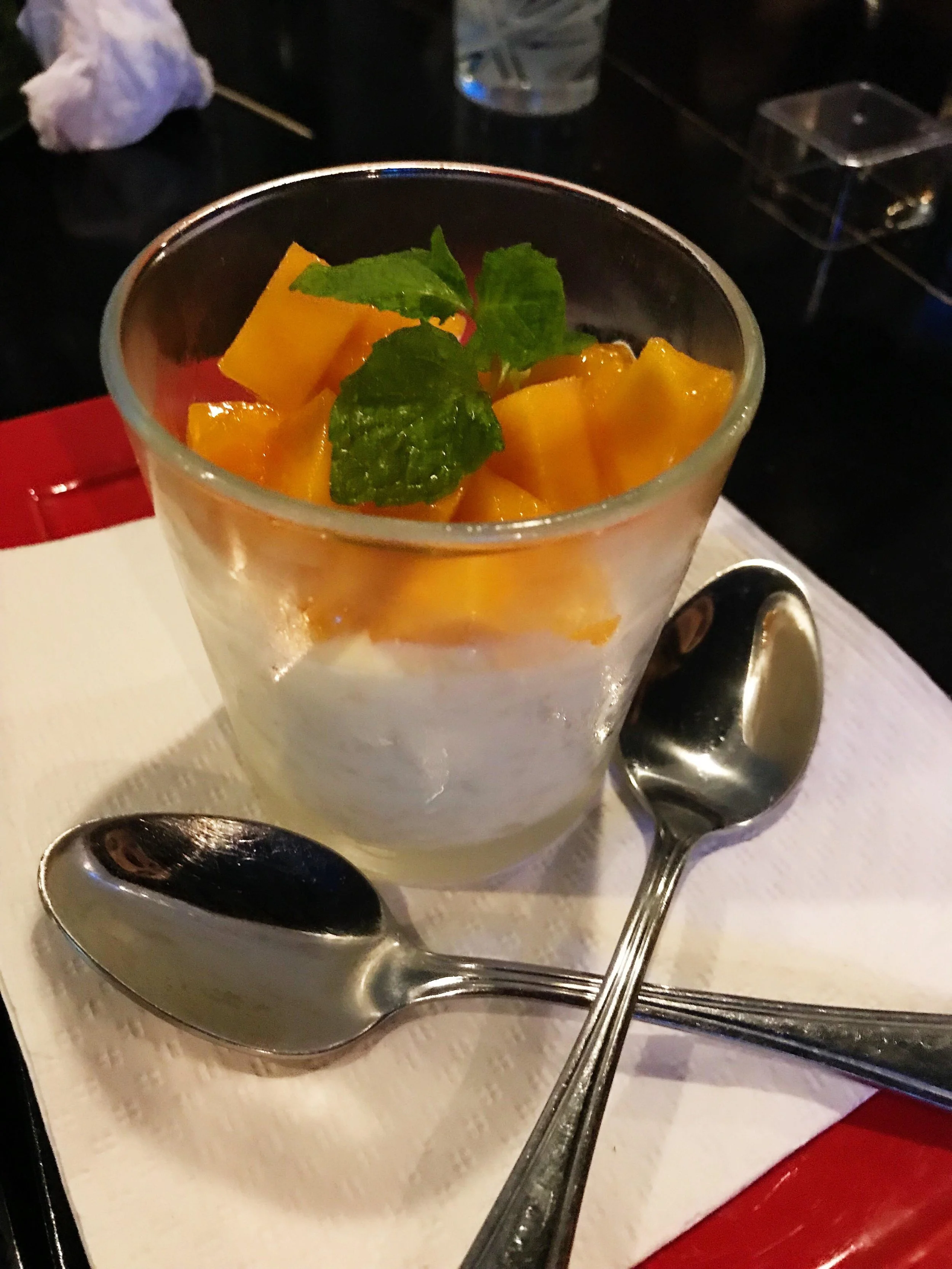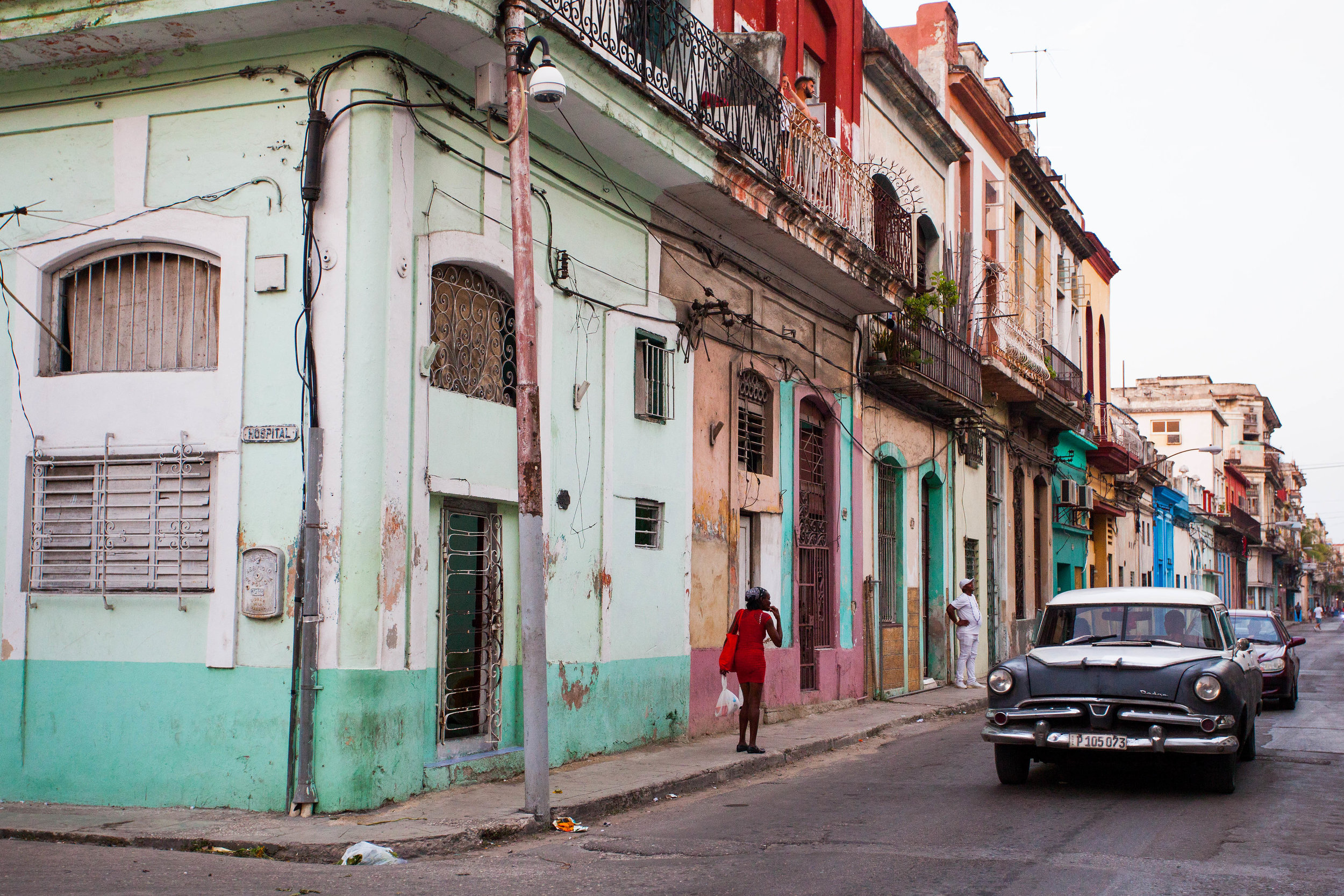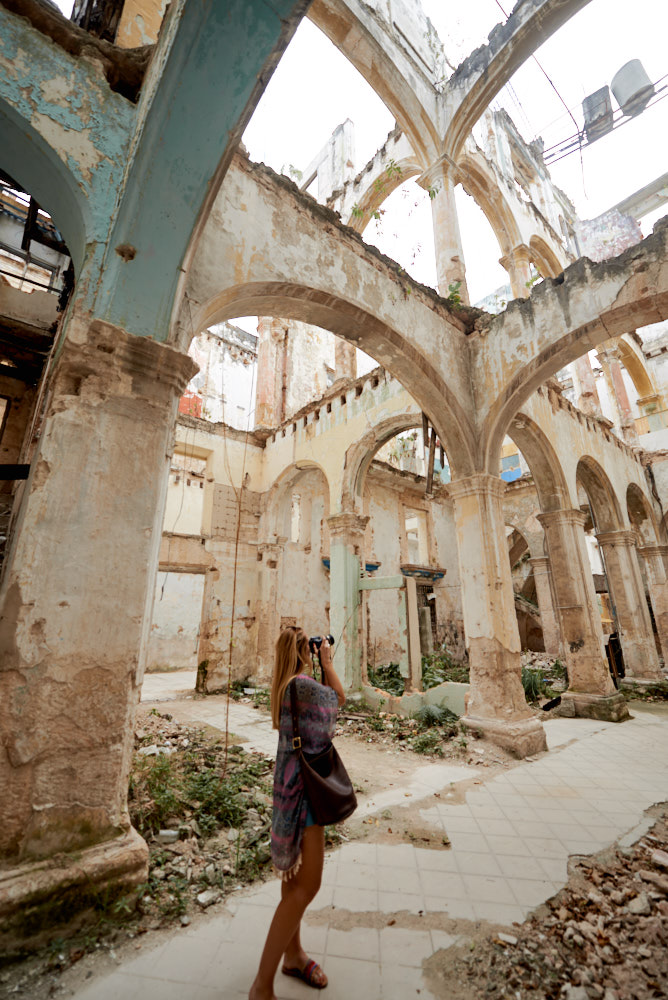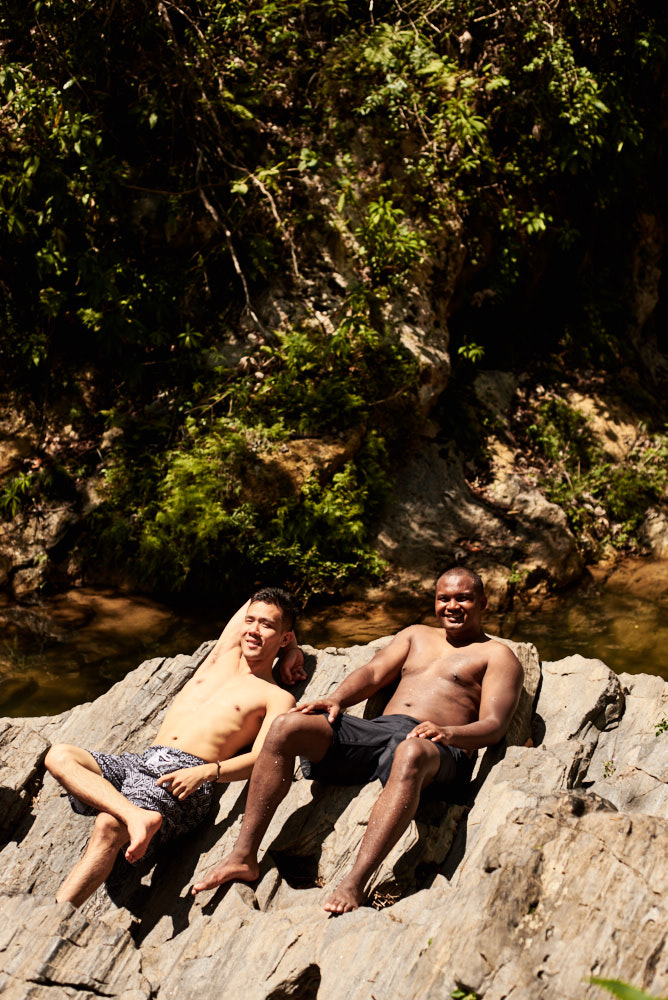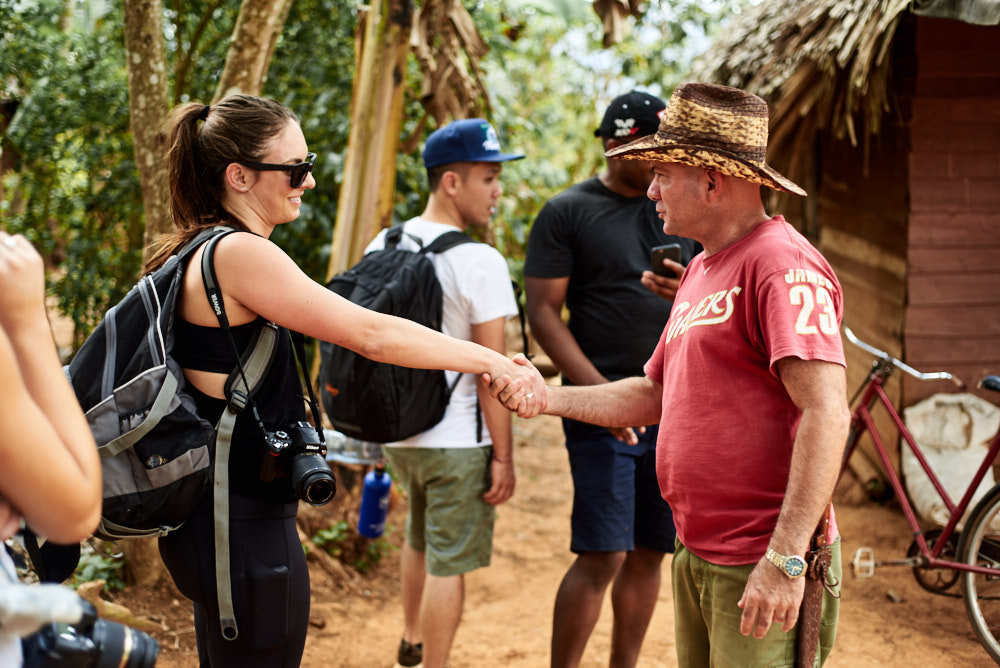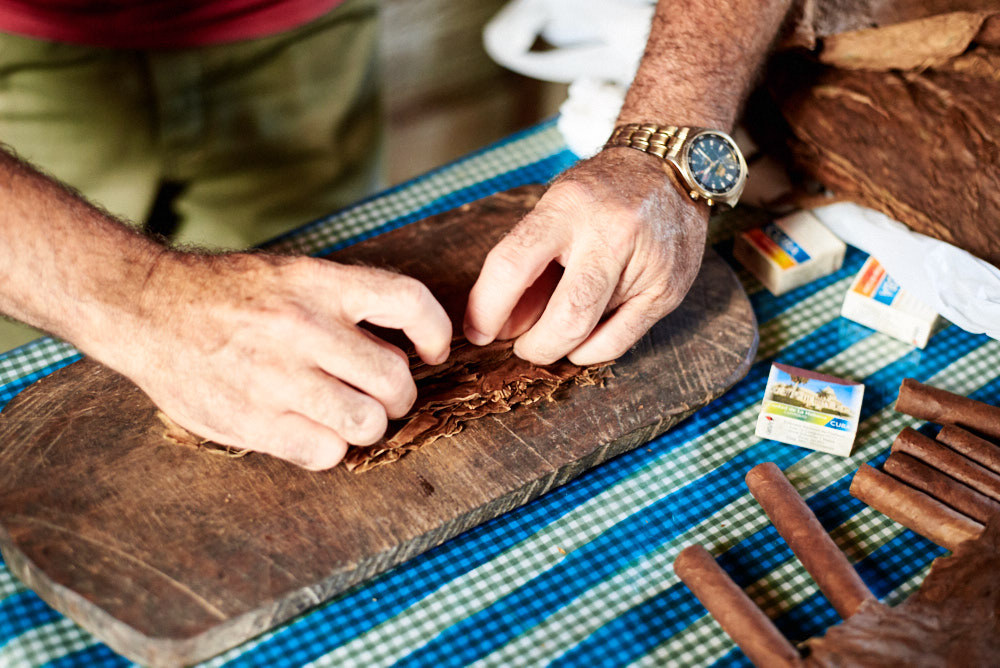Cuba is not exactly known for its restaurant scene. Up until 2010, food establishments in Cuba were either state-owned or family-run restaurants (known as paladares), set up in family homes and serving traditional homemade food like rice, beans, pork, and plantains.
I remember going to Cuba for the first time in 2013 and mostly eating the same dishes over and over. It was always jamón y queso sandwiches for lunch, and although I'd try to seek out new dishes at dinnertime, I'd normally come back to eating some variant of rice, beans, and pork. And because Cubans rely on food rations from the government, many restaurants frequently run out of ingredients, resulting in limited menu options.
Havana's restaurant scene has seen a recent boom in independently owned restaurants, due to the mix of tourist dollars and Raul Castro's new policy that allows Cuban citizens more entrepreneurial freedom. These are not your typical paladares; these restaurants are headed by ambitious chefs focused on bringing new culinary traditions to the Cuban table, with a heady mix of international flavors.
After 2013, some chefs have had the opportunity to hone their culinary craft outside of Cuba, under Raul Castro's policy of allowing Cuban citizens to exit the country for the first time in over 50 years.
Recently, I sat down with Carlos Alonso Acosta, chef at one of Havana's first Cuban-Asian fusion restaurants, Jama, to discuss his creative fusions and Cuba's burgeoning food scene. Known for their succulent pork belly tacos, mango daiquiris, and fried plantains with soy sauce and sesame seeds, Jama has a low-key vibe that entices even the most discerning foodies around.
Photo by Janette Casolary for Fisheye Journeys
How did you become interested in culinary art?
My friend and I (the guy I'm currently working with) have been working together with a chef named Thomas Erasmo since we were 18 years old. [Erasmo] is a very important chef in Cuba. He's really the one who showed us and cultivated our love for this type of work, [especially] for food and service. Erasmo was Fidel [Castro's] chef for a long time, and he cooked for Celia Sanchez, too.
How long did you work with him?
Between the ages of 18-29 years old.
Was it private or state culinary work?
State work. First in a restaurant called El Tocororo and then in El Rancho Palco. The restaurants belong to the state, but [Erasmo] ran these restaurants as if they were his. He loved them and did a lot of work for them. It's not like now, where state restaurants employ people who don't really have an interest in anything that happens in the restaurants. They only work there to obtain their economic benefits from the state. But Erasmo did the complete opposite. He poured his love into everything he did, and that's what he taught us: to have love for everything we do.
Is that how you learned how to cook or did you attend formal cooking classes?
We learned how to cook and do everything [with Erasmo in those restaurants]. We became interested, we studied, we looked for books. Our possibilities opened up and we got to meet and learn from new people, [including] chefs that came from France.
Then, I obtained my visa to the U.S. and wow, it was so important. Now, I know Los Angeles, and they have a very rich food culture. I also know Philadelphia very well. I go [there] every year, and find Cuban restaurants, Thai restaurants, Indian, Vietnamese, Japanese. I get ideas from there, as well. I currently have a dessert here (at the restaurant) that's made with sweet rice with milk and mango. I got the idea from Los Angeles.
Do Cubans eat sweet rice with milk?
Sweet rice with regular milk, yes. But not with coconut milk or mango.
How do you incorporate traditional Cuban flavors into your dishes?
I think about the ingredients and flavors that I like. And when I'm done with something, I give [my] restaurant team a taste. I ask, 'Do you like this? Try it, what do you think?' When our friends come to eat, I ask them what they think and they give me tips, like 'I'd like it a bit more crispy' or 'maybe a bit spicier', and I refine the recipe from there.
For example, we have shrimp tacos here, but it's breaded shrimp. At first, we made them only with breaded shrimp and pico de gallo, tomato, cilantro, onions. But a friend of mine suggested I should add something spicy. And I added a bit of spice.
Our first time at Jama. We loved it!
Are they industry friends? People that have culinary knowledge?
Just normal people. People that love to eat and love food. Like, if you told me right now, 'I'd like to try this mango daiquiri with honey instead of sugar.'
How receptive have Cubans been to Japanese food?
Good, because really, it's not strictly Japanese food. It's a fusion. We mix everything. People in Asia eat a lot of spicy food, and us Cubans use very little spice, if at all.
Have they enjoyed the sushi?
They do like the sushi because it's a very light taste. Cubans don't generally like the idea of eating raw fish. It's something new to them and their palate, but by incorporating breaded shrimp, they like it.
Why do you think fusion foods are important?
Because there is a margin for me to play with different opinions and my ideas. You can eat sushi here or a Mexican plate because I add Asian beans too, so you get to play with your imagination. You have a wider range of possibilities with fusion food.
What ingredients do you like to mix and play with?
Miso. And I really like to add a bit of spice to everything. Here in Cuba, something important we count on is pork. We roast it with a bit of sugar, a bit of soy sauce, salt - and that combination, at the end, when the meat is roasted, is really good. It leaves a sweet taste in your palate afterward and people love it. The pork belly, when you roast it with sugar, is spectacular.
What is your favorite restaurant?
*Laughs* That's not this one? O'Reilly 304 or El del Frente.
Where do you see the restaurant scene in Havana in 5 years?
I think that in 5 years, Cuba will be different - for the better. We're going to advance a lot in the gastronomy culture because now we are more educated on the subject and we have a different concept of the client. We give more importance to the client. We respect the client and give them what they want. And if we don't have [an ingredient], we do whatever possible so that the client doesn't leave with a bad opinion or a bad taste for the place. And I think Cubans are being more receptive, in that sense.
Ryan has strong feelings about the Thai curry soup at Jama
How do you think introducing a different cuisine has changed Cuba?
By introducing new flavors, you start changing and educating people's palates. In Cuban homes, you mostly eat rice, beans, pork, you start changing and educating people's palates. In Cuban homes, you mostly eat rice, beans, pork, friend eggs, fried chicken or roasted pork. When you introduce other flavors - like salads, vegetables, fruits, sushi - people are experimenting with them and it amplifies their palate.
If you could travel anywhere in the world right now, where would you go and what would you eat?
I love Indian food. Everything curry. I love strong flavors. But I would go to Brazil to get to know their food and culture. They cook with a lot of coconut.
What is your next project?
When this restaurant really takes off, one day I want to set up an Asian cooking school in the U.S. and teach.
Jama is located at Aguiar #261B, entre O'Reilly y San Juan de Dios, in Habana Vieja
What are your favorite restaurants in Havana? Comment below to let me know!
Author: Rocio Yepez
Founder of Fisheye Journeys
Photo by Janette Casolary
It's not always easy to track down Rocio. She's always been a free spirit, but since her epic solo backpacking trip, she's been consuming life in rather large quantities! Four months of travel adventure in southeast Asia will do that to a person!
By trade, she's a lifestyle, portrait, and travel photographer. Fascinated by the give and take between people, she aims to capture that magic instant BETWEEN moments - the "passing" moments, where little is offered, but so much is revealed.
When she's not capturing life on film, she may be in acting class, at the bookstore, or engaged in a class to learn something completely new. She has a bachelor's degree in psychology and a strong mind to earn tenure as a permanent student at community college. If you see her flat-footed, be sure to snap a picture, that's about as rare as seeing her in a bad mood. She's constantly moving, exploring, discovering, and growing.

